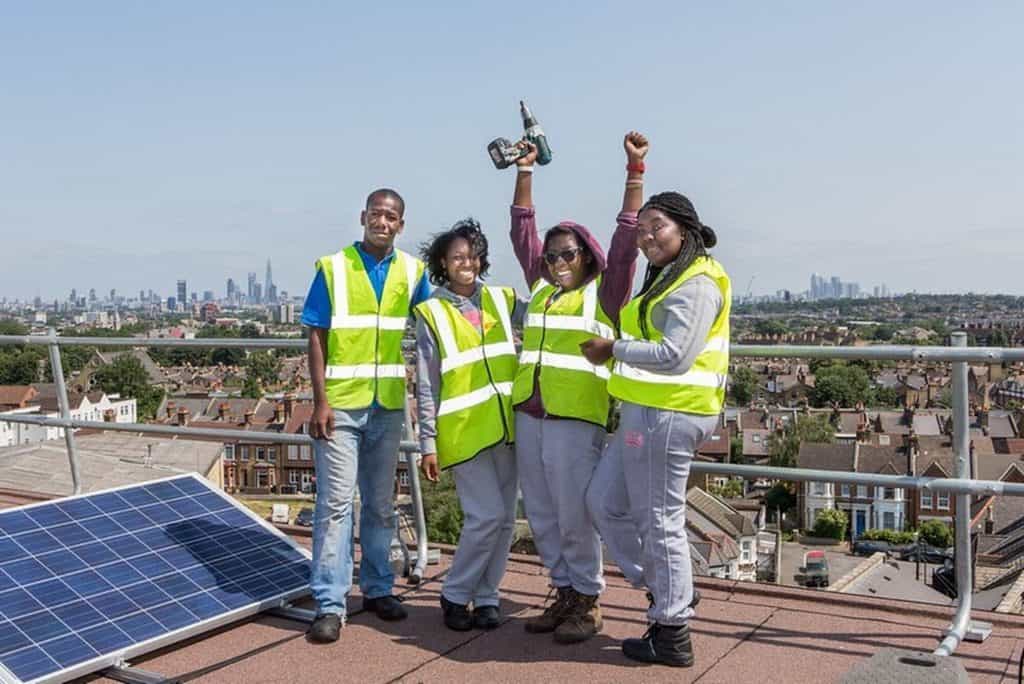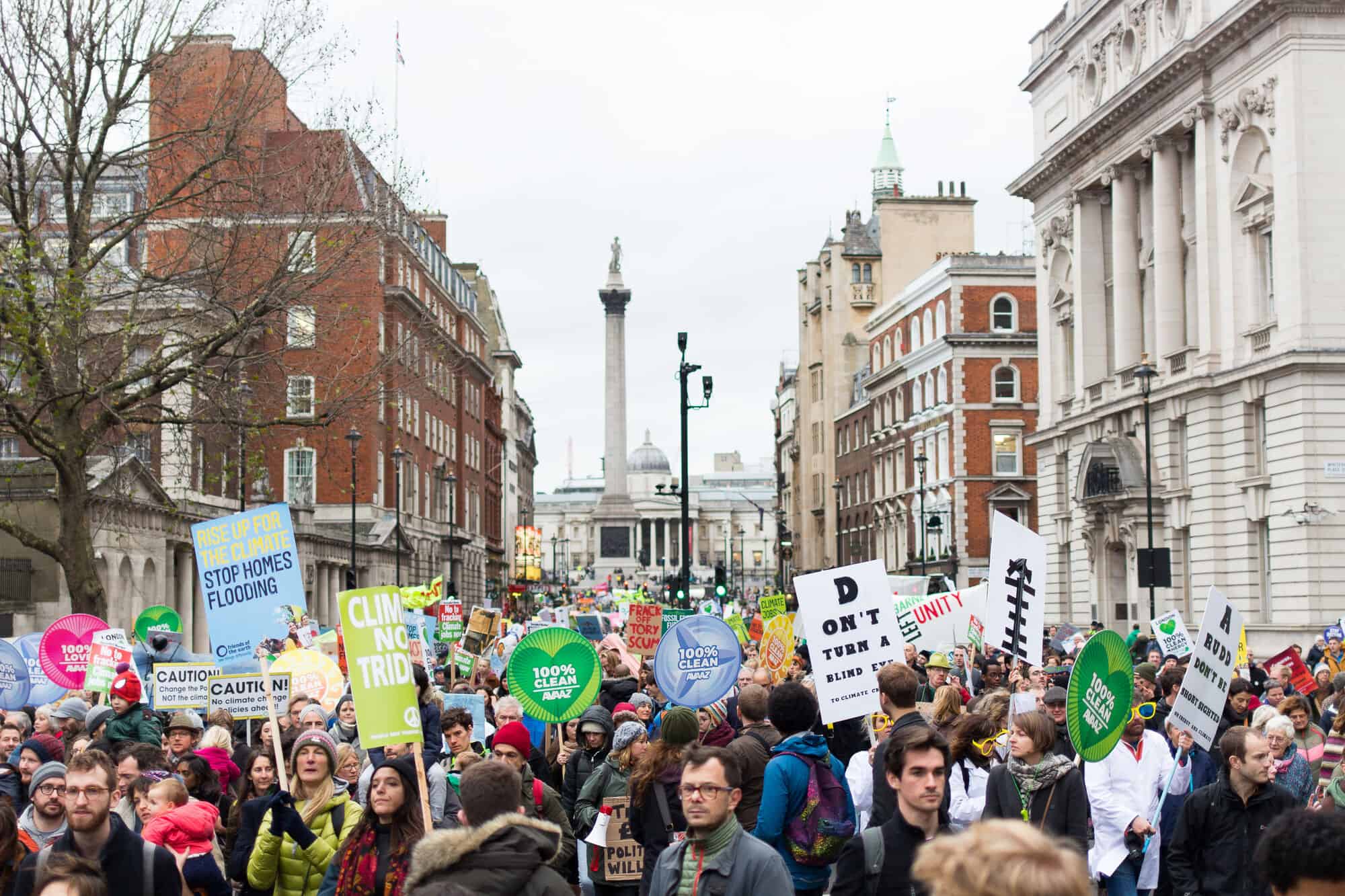Council climate action delivers warmer homes, cleaner air, better health and green job opportunities – as well as reduced emissions. And with coronavirus battering local authority budgets, the power to tackle multiple issues at once is more important than ever. Successful initiatives engage and inspire local people – this allows projects to overcome political hurdles, but also to harness the enormous power of our communities, something that has been on display throughout the pandemic.
More than 200 UK councils have already declared a climate emergency, but many are struggling to turn ambition into action. Ashden’s Climate Action Co-benefits toolkit use proven solutions to help authorities make the business case for more radical climate action. This month we expanded the toolkit with a new chapter on citizen engagement. Here’s how leaders and innovators are tackling the issue – from enabling digital discussion to forging community partnerships.
Listening to citizens – online and offline
Oxford City Council convened a climate change citizens’ assembly last Autumn. 50 residents, who were selected by a stratified random sampling process, met over two weekends. They learnt from experts about the fundamentals of climate change and decarbonisation actions, then made recommendations to the city council. As the assembly progressed the co-benefits of climate action came to the fore, and focus shifted to how limited public funding could be used to address the climate emergency and deliver on other council priorities.
Our citizen engagement chapter includes case studies of climate assemblies and juries and also looks at the challenges of online engagement, particularly relevant now that public gatherings can’t take place. A quick Ashden poll of more than 80 local authority staff and councillors reveals that 39 per cent are already engaging on climate change digitally, but many worry about how inclusive this is.
mySociety, who feature in the toolkit, have produced several guides about working with digital tools for community participation. The organisation gives examples of how digital processes can be made more inclusive such as ensuring that online meetings can be accessed through dial-up, planning shorter sessions and running test calls to build confidence. They also note that some participants may find online meetings less intimidating than face-to-face sessions.

Communities leading the way
There has been a surge in community-led activity on climate action in the last year, and our toolkit features inspiring case studies from across the country. By supporting community initiatives, local authorities can build trust, deliver wider benefits and potentially increase the capacity of stretched council staff. A great example is South East London Community Energy (SELCE), who have partnered with Charlton Athletic football club and 12 local authorities to deliver an ambitious fuel poverty scheme that is improving the energy efficiency of local homes. People living in cold homes are more likely to suffer from respiratory illness, so this initiative is saving money for the NHS too. SELCE is now working with coronavirus mutual aid groups to target vulnerable residents.

Tackling objections head on
Meeting carbon reduction targets will require significant changes to the way most people live and not all of these changes will be popular. Demonstrating the co-benefits of climate action can be helpful in winning hearts and minds. A great example here is the school streets programme led by Ashden winner Sustrans. Streets adjacent to schools are closed at school opening and close times with entry to pedestrians and cyclists only. While there is often initial resistance to restricting access by car, parents soon appreciate clean, quiet streets where their children can play safely. safe streets where their children can play. And there are clear health benefits too from reduced air pollution and road accidents.
There is also anxiety around jobs as we decarbonise our economy. That’s where community projects such as those run by London charity Repowering come in. Their renewable energy initiatives involve local young people with an accredited, paid, youth training programme. Repowering CEO Afsheen Rashid says: “Our scheme targets young people who lack adequate opportunities and role models, who are often disengaged with education. When procuring low carbon projects, councils should be sure to include work experience placements that are genuinely inclusive.”
During lockdown, people have come to value their neighbourhoods more – perhaps visiting a local park for the first time, making more use of the high street, meeting their neighbours. Councils that engage with this new concern for the places that we live, and link climate action with improving lives for their citizens, can be bolder in tackling the climate emergency.
Nick Gardner, Head of Climate Action at the National Lottery Community Fund, explains: “At a time when public concern about the environment is at a record high, it is vitally important to retain a positive narrative to engage people and communities. By focusing on co-benefits we will encourage a wider-cross section of the population to engage with climate action.”
This chapter of the co-benefits toolkit was made possible by a grant from the National Lottery Community Fund.

